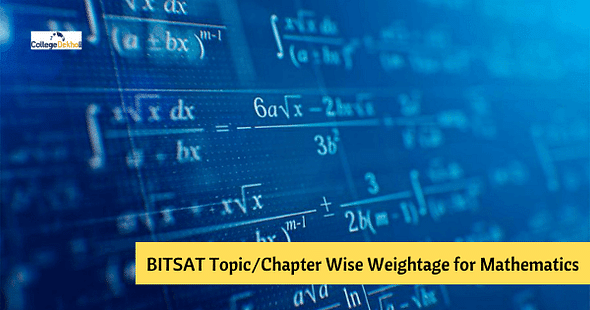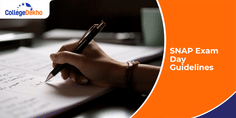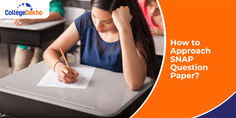The high-weighing topics in the BITSAT 2025 exam include the Application of Derivatives, Circles, Continuity & Differentiability, etc. Furthermore, preparation strategy for these topics can involve studying chapters as per BITSAT Maths weightage, prioritizing important chapters first etc.

BITSAT 2025 Mathematics Chapter/ Topic Wise Weightage & Important Topics: Mathematics is an important section that has the highest weightage in the BITSAT 2025 exam. The BITSAT chapter wise weightage is structured based on the previous year’s analysis of question papers. Talking about the BITS chapter wise weightage comprises 45 questions, and each question is allotted three marks. Circles, straight lines, vectors, and calculus carry the maximum weightage (with 6 to 11 % of the total marks) for BITSAT 2025 Mathematics among the list of important topics. As the complete BITSAT 2025 Mathematics syllabus is vast, you must make sure to identify all the important topics. In this article, we will be talking about the BITSAT chapter wise weightage 2025 as well as the important topics for the exam.
Quick Links:
BITSAT 2025 Mathematics Topic/ Chapter Wise Weightage
The weightage of the BITSAT Mathematics varies based on different chapters of the subject. For preparation for the BITSAT Mathematics section, you are advised to focus more on the high BITSAT Maths weightage topics. Read more details about the BITSAT chapter wise weightage in the table below:-
Name of the topic | BITSAT Chapter Wise Weightage 2025 | Weightage (Percentage Wise) |
|---|---|---|
Circles | 4-5 | 11% |
Straight Lines & Pair of Straight Lines | 2-3 | 7% |
Continuity & Differentiability | 2-3 | 7% |
Theory of Equation | 2-3 | 7% |
Binomial Theorem | 2-3 | 7% |
Sets, Relations & Functions | 2-3 | 7% |
Properties of Triangles | 1 | 4% |
Trigonometric Ratios & Identities | 2 | 3% |
Trigonometric Equations | 2 | 3% |
Probability | 2 | 3% |
Matrices Determinants | 3-4 | 5% |
Application of Derivatives | 6-7 | 12% |
Permutations & Combinations | 4-5 | 11% |
Parabola | 3-4 | 5% |
Sequence & Series | 4-5 | 11% |
Inverse Trigonometry | 1 | 4% |
Limits & Differential Coefficient | 2-3 | 7% |
Statistics | 1 | 4% |
Complex Numbers | 1 | 4% |
BITSAT 2025 Mathematics: Important Chapters
While doing the preparation for BITSAT 2025 Mathematics, you must make sure to allot more time to the important chapters. You should note that these chapters have been termed important as questions related to them have been asked consistently in the examination with BITSAT Maths weightage. The complete list of the BITSAT important chapters of Mathematics can be found below:-
- Circles
- Trigonometry
- Vectors
- Straight Lines and a Pair of Straight Lines
- Continuity and Differentiability
- Matrices and Determinants
- Binomial Theorem
- Complex Numbers
- Probability
- Application of Derivatives
- Complex Numbers
- Differential Equations
- Properties of Triangle
- Sets, Relations, and Functions
- Theory of Equation
BITSAT 2025 Mathematics Preparation Tips
In order to secure good marks in the Mathematics section of BITSAT 2025, you need to make a strong strategy to prepare for the exam. Furthermore, BITSAT 2025 exam preparation tips for Mathematics include studying from the recommended study material, solving previous year's question papers consistently, etc. Get more details related to BITSAT 2025 Mathematics preparation tips below:-
- It is very important for you to revise the entire syllabus of 12th-class syllabus.
- From the syllabus of class 11th, you are advised to put more emphasis on the topics mentioned above.
- You are required to keep revising all the formulae as the formula-based questions have a high priority in the Mathematics section of the BITSAT question paper.
- The BITSAT exam requires a minimum of 60 days of preparation, and you should allot at least one hour daily for Mathematics preparation.
- It is important to be aware of the NCERT Mathematics syllabus of the 12th to fetch better marks in the entrance exam.
- Attempt at least one practice/ mock test per day 30 days before the exam. Identify your weak areas and work on them accordingly.
- Solving problems daily will enable you to answer MCQs in BITSAT accurately. For this purpose, memorize the formulas thoroughly.
- Attempt at least 4-5 problems that come under each formula for improved efficiency.
- The last 5 days before the exam should be reserved for full-length revision and practice instead of learning new concepts.
BITSAT 2025 Mathematics Weightage-Wise Preparation Strategy
Strategizing your preparation for the BITSAT chapter wise weightage is very important as it can help you elevate your score in a limited time duration. Furthermore, through the points below, we will be discussing how you can structure your preparation based on the BITSAT weightage 2025 wise topics:-
- Analyze the BITSAT Maths chapter wise weightage: The first and foremost step in preparing BITSAT chapter wise weightage 2025 is to analyze the complete syllabus based on what topics are asked about frequently in the examination. Doing this will help you maintain a good score on the BITSAT exam. You can find the details related to the topic-wise weightage above in this article.
- Prioritize high-weightage topics: The topics that weigh more than the others, such as Application of Derivatives, Circles, Continuity & Differentiability, Theory of Equation, Binomial Theorem, etc must be studied with precedence as they can help you get a good score in the exam.
- Allot time based upon weightage and difficulty: Once you are familiar with the difficulty level and the weightage of the topics of BITSAT 2025 Mathematics, you are advised to allot more time to these topics such as Theory of Equation, Binomial Theorem, etc.
We hope that the above explanation shall help you in preparing for the BITSAT 2025 Mathematics chapter/topic-wise weightage & important topics effectively.
Are you feeling lost and unsure about what career path to take after completing 12th standard?
Say goodbye to confusion and hello to a bright future!

FAQs
As per the previous year’s trends, some of the highest weightage topics in the BITSAT 2024 mathematics exam are Sequence & Series, Circles, Integration, App of Derivatives, and Differential Equations, Differentiation, Linear Programming Problems.
As per the previous year’s trends, some of the lowest weightage topics in the BITSAT 2024 mathematics exam are 3D Geometry, Complex Numbers, Conic, Heights & Distances, Permutations & Combinations, Sets, Relations & Functions, and Straight Lines.
Some of the important topics asked in the BITSAT Mathematics from the class 11 syllabus are Conic Sections, Limits (*Calculus), Permutations & Combinations.
Various terminology in probability, axiomatic and other approaches of probability, addition and multiplication rules of probability, Conditional probability, total probability, Baye’s theorem, Independent event, Discrete random variables, and distributions with mean and variance are some of the important topics in Probability from BITSAT Mathematics.
Was this article helpful?





















Similar Articles
GATE CS Question Paper Difficulty Level Trends: A detailed analysis
JEE Main 2026 Chemistry High Priority and Low Priority Chapters
Are JEE Main Study Groups Worth It? Detailed Pros and Cons for 2026 Aspirants
How to Prioritize Physics Chapters Based on JEE Main 2026 Weightage and Difficulty
GATE 2026 Mechanical Engineering Expected No. of Questions Topic-Wise
GATE 2026 Civil Engineering Expected No. of Questions Topic-Wise